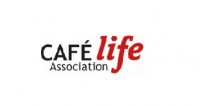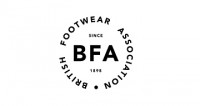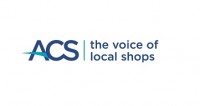Concerns expressed by retail leaders following Chancellor’s Autumn Statement
Posted on in Business News, Cycles News, Political News
Retail sector leaders have expressed a range of concerns, from taxation to business rates, following the Chancellor’s Autumn Statement this week.

In the statement, the Chancellor announced a business rates support package worth £4.3 billion over the next five years to help high streets and small businesses. This will comprise a rollover of 75% retail, hospitality and leisure relief for 230,000 properties and a freeze to the small business multiplier. Around 230,000 retail, hospitality and leisure properties will receive the 75% relief, up to a cap of £110,000 per business, on their business rates bills for 2024-25.
Tina McKenzie, policy chair at the Federation of Small Businesses said:
"Business rates are one of the absolute worst taxes faced by small firms. Size matters when it comes to rates, and the Chancellor is absolutely right to have concentrated his firepower on helping the smallest firms at the heart of so many communities."
Kate Nicholls, chief executive of trade body UKHospitality, said the move to freeze the small business multiplier "will help those most vulnerable keep the lights on".
But she also pointed out that standard multiplier rising by 6.4% will see businesses representing almost two-thirds of the sector’s trade still facing a £150 million rates hike.
She added: "This will only put more pressure on consumer prices and inflation, at a time when businesses are still grappling with high costs of energy, food, drink and wages."
The British Property Federation's Melanie Leech told the London Evening Standard:
“Measures to provide relief for small businesses are welcome but only scratch the surface. The Chancellor should have gone further and frozen the multiplier for all businesses to prevent the unsustainable burden on the high street rising even higher.”
Paul Martin, UK head of retail at KPMG, commented on the decision to reduce the personal tax burden saying it “offers some positive news for the retail sector, at a time when consumer confidence is low, and households are reining in spending on the high street. Whilst the reduction in national insurance contributions will help put more money in the pockets of some households, it will do little to help the burden on lower income families or reduce the high food inflation levels that they are facing, and I would expect consumers to remain cautious around non-essential spending in the medium term.
“Labour costs and a shortage in workers remains a big challenge for the retail sector, and whilst most larger supermarkets are already paying around the new living and minimum wage rates announced today to get the best people into roles, it is an additional cost burden facing smaller, independent retailers at a time when consumer demand is softening. What retailers would have liked to have seen is some final decision on the reform of business rates – a key issue that has been kicked down the road for too long. Smaller and independent retailers were thrown a lifeline with the extension of the 75% business rates discount for a further year, but the uncertainty around one of their biggest costs as they navigate challenging economic times would have been much welcomed today and is an issue that can’t be put off for much longer.”
Useful links
If you have any other queries please contact us.





















